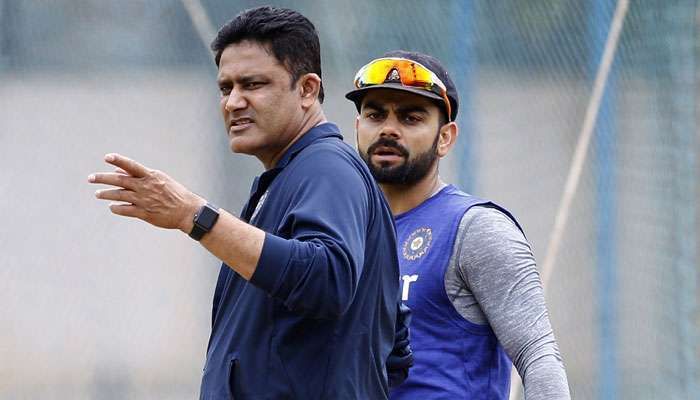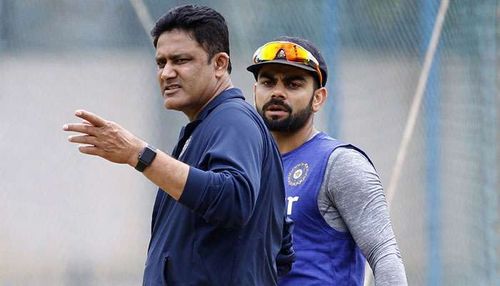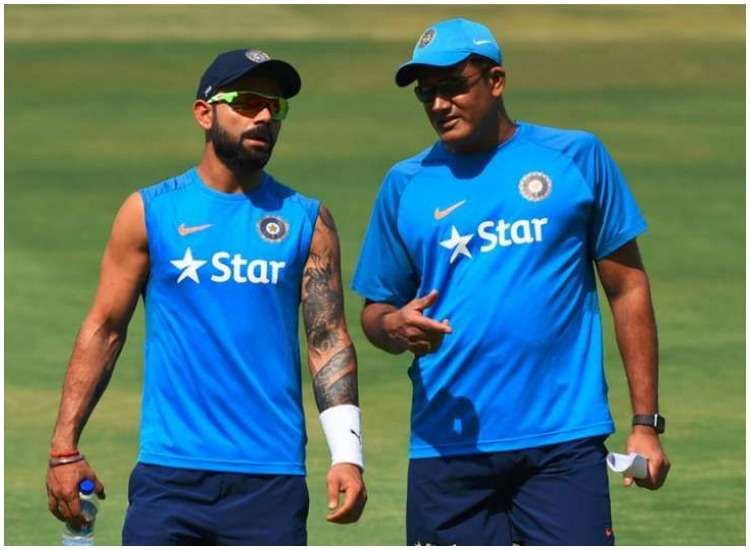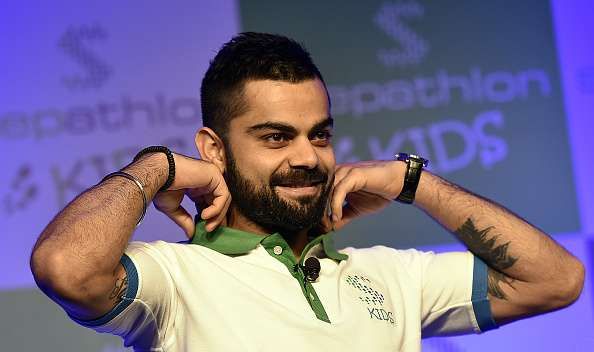
The Kumble-Kohli saga - a tale of frayed egos

Self-esteem is a slippery word – it rests on the fine line between self-respect and what lies beyond. And although a wise man acknowledges and appreciates that, violating the boundary and venturing into the greyer pastures of superlative forms of amoure-propre, even if subconsciously, is too easy.
The content of the letter that marked Anil Kumble’s transition from the Indian coach to former Indian coach trespasses these limits of self-esteem. It reminds one of the quality that few are man enough to accept and admit. It’s a word of embarrassment, a sinful word – ego. It’s the root of vices, lying in the realm of negativity.
For ego to develop, it is a prerequisite to have a strong character. As someone who has been considered to be of ‘captaincy material’ from his early under-19 days, Virat Kohli has never been close to lacking strength of character. With each success, self-esteem receives a little boost, and considering the amount of success Kohli has garnered in the last few years, it was always a matter of time before he stretched the perimeters.
Yet, it was somewhat surprising when reports stating him taking on a legendary exponent of the game surfaced days before an ICC event. Here was a man who had always believed in pushing for more, who had refused to stop improving his game even after being hailed as one of the greatest active cricketers. Not that humility has been Kohli’s strongest point, but he has always been known to be receptive towards constructive advice, especially when it involved self-improvement.
Obstinacy isn’t probably the best of qualities, but it has served Kohli well all these years. His stubbornness to play for Delhi a day after his father passed away had changed him as a person. His determination to win against all odds has clinched awe-inspiring victories for his team on several occasions. The Sri Lankan team at Hobart in 2012 could vouch for that.
On the other hand, Kumble’s tales of stubbornness are well-known. Scenes of him bowling with a fractured jaw are unforgettable for those who had witnessed the power of will that day. Professionalism, commitment, discipline and an uncompromising attitude for the sake of the team have been his defining traits throughout.
What, then, went wrong in this relationship between the two most faithful servants of Indian cricket? Surely both Kohli and Kumble had sworn to act in the best interests of Indian cricket. Their goals must have been the same, but were their plans for achieving that goal different? Even then, was a compromise not at all possible?
Also read: Pause, breathe, and wait: Allow Virat Kohli to speak before vilifying him
Stubbornness is one thing, immaturity is quite another. Kohli may not have been on the same page as Kumble regarding Kuldeep Yadav, but accusing the head coach of being a strict disciplinarian is absurd and unreasonable. If Kohli, along with others in the dressing room, had found Kumble’s attitude to be ‘overbearing’, they should have realised that this is one of the traits that has made Kumble the legend he is today. Moreover, they did deserve the harshness after their pathetic performance in the Champions Trophy final.

Few understand the sport as deeply as Kumble does. His entire career was founded on intelligent cricket – he never turned the ball too much, but managed to scalp enough wickets by varying his length and bounce. And in an age of Shane Warnes and Muttiah Muralitharans, that made Kumble’s success at the highest stage outrageous.
When Kumble was appointed as the head coach, he was entrusted with the job of not only being a manager but also a mentor. His role was not only to ensure a positive environment within the team, but also take the team to greater heights through proper guidance and supervision. That entails reprimanding the youngsters after poor performances, regardless of what Kohli might have thought.
Blaming Kumble for doing precisely what he had been assigned to do, and debunking his philosophy and understanding of the game is simply illogical.
It is extremely unfortunate that Kumble found his partnership with Kohli ‘untenable’ after a period of time, and it begs the question of why the issue was allowed to progress to this point. The BCCI’s attempts at ‘resolving the misunderstandings’, quite evidently, hadn’t been adequate, while the CAC’s role in this context, if at all, remains doubtful.
Also read: Deliver or even you will face the music, BCCI puts the spotlight on Virat Kohli
The seeds of dissatisfaction had been sown long ago. As the difference of opinion that gradually grew into a rift eventually culminated in a relationship beyond repair, one could not but wonder whether it would have come to this had the concerned authorities taken a firmer stand during the initial stages.
It’s not uncommon to have reservations about the coach’s decisions when you are the one leading the team on the field. But to hold it against him instead of sorting it out behind closed doors is a sign of immaturity, if not folly. And today, with Kohli’s ego emerging victorious, Indian cricket has been thrust into a directionless alley, courtesy the foolhardiness of the entirely unnecessary and avoidable saga.

Imagine the message going out to Kumble’s successor: You, unlike the captain, are dispensable. So unless you are a yes-man, you are not fit to coach the captain’s team.
The captain’s team. Not the Indian team. This is Kohli’s team, and he has the authority to do as he pleases, even if it involves sacking half the support staff.
For ardent followers of Indian cricket, the circumstances are reminiscent of Sourav Ganguly’s reign in the mid-2000s. But Kohli is not Ganguly. His tactical nous has so far been uninspiring, his understanding of the game shallow, and he has frequently fallen short of making the right decisions at the right time.
It is understandable, therefore, how Kumble’s resignation resulting in Kohli’s exercise of unsupervised free will makes the recent scenario scary. The BCCI had failed to seize the opportunity to make things right while there was time, but they now have a second chance to vest the powers in able hands instead of in what Sunil Gavaskar calls a ‘softie’. Unless that happens, Indian cricket may well find themselves suffering from the repercussions of Kumble’s departure for years to come.